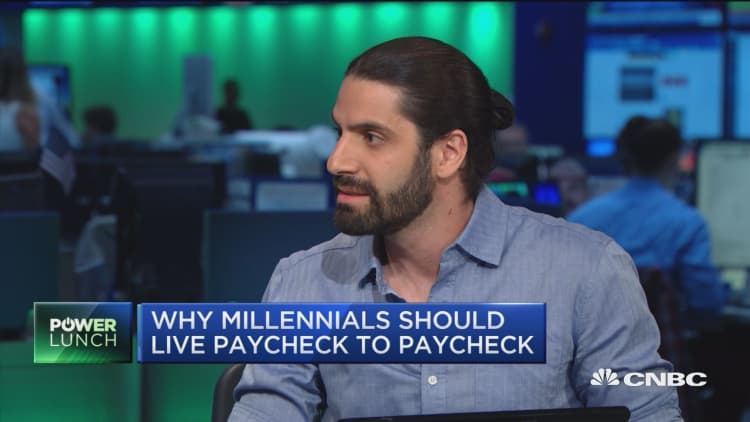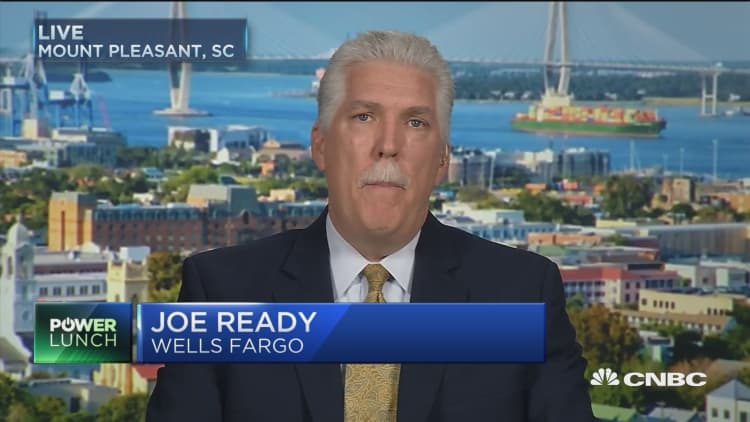


Millennials are decades away from retirement, but they are losing sleep over whether they will have enough saved once they get there.
Having enough money to retire was the No. 1 source of financial stress for millennials polled by Schwab Retirement Plan Services.
In fact, it was cited as the top worry for the 1,000 401(k) plan investors who participated in the survey of different generations.
Approximately a third of these individuals were millennials, and 38 percent of them deemed saving enough money to retire as a significant financial stressor.
Keeping pace with monthly expenses came in second place and paying off credit cards followed in third.
Student loan debt, the personal finance boogeyman for many in their 20s and 30s, rounded out the top four financial stressors for millennials.
Retirement savings is a stressful topic for young investors because it's shrouded in uncertainty, said Catherine Golladay, senior vice president of participant services and administration at Schwab Retirement Plan Services.
"Keeping up with your monthly expenses, paying your credit card debt and your student loans — those are known to an individual once they are in the workforce," she said. "Saving for a comfortable retirement? That's an unknown and that in itself can cause stress."
Advise and educate
Even though 401(k) plan participants know they need to address their retirement savings needs, they're having a hard time turning those good intentions into action.
For one thing, higher deferrals into a retirement plan might help savers feel better about accumulating enough money.
In reality, about a third of the people surveyed either kept their plan contributions steady or have reduced their savings in the last two years.
Everyday obstacles stand between 401(k) savers and their ability to put money away for retirement. See the chart below.
Thirty-two percent of the people polled cited their unwillingness to sacrifice things that add to their quality of life as an obstacle that stands between them and saving.
Other obstacles include paying for unexpected costs and covering their children's education — about 30 percent of those polled pointed to these two respective issues.
Employers can help their workers tackle those issues by making professional financial guidance available, said Golladay. For now, 10 percent of those surveyed are receiving advice over their 401(k) decisions.
Companies can take their offerings a step further by providing financial wellness services, which place retirement savings in context with everyday finances, including debt repayment and creating an emergency fund.
Advisors say that the success of these education and advice programs depends greatly on the employees' ability to carry out the recommendations they receive.
Companies can help by making hands-on advice available at the workplace, including bringing in professionals available to answer employees' questions about their finances, said Lazetta Rainey Braxton, founder and CEO of Financial Fountains in Baltimore.
"It's still overwhelming for people to digest what they have heard and make it applicable to real life," Braxton said.
"Employers need to make sure that their educational and personal finance offerings are robust, consistent and well-advertised," she said.


